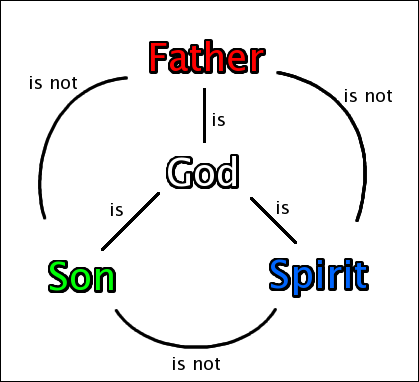- Oct 8, 2004
- 5,552
- 308
- 49
- Faith
- Christian
- Marital Status
- Married
- Politics
- US-Libertarian
I believe that Shernren challanged me back in March '06 to make this comparison between Genesis and John and I am just now getting to it. Although I can find many rich comparisons to make between the Torah, the OT, and the New Testament for the purpose of this forum lets try in as much as it is possible to stick to an OT discussion.
Here is the original post made by Shernren in the Creationist subforum:
http://www.christianforums.com/showpost.php?p=22377504&postcount=6
And here is my initial response:
As Christians, many here would agree that humans are fashioned with a Trinitarian nature after our Creator. From what we read in the Scriptures, the gospels and epistles and/or sacred writings that came after the time of Christs earthly birth, resurrection, and ascension have served to aide us in our search for finding that nature within ourselves. However, as written in ancient texts, there is nothing new under the sun. Or is there? Perhaps a keener hind sight through the view of keener sciences and sharper theological standpoints. For these issues, we must accept the pros with the cons and try to find the path our Father in Heaven has prepared for us.
If Genesis is then but a picture of what God the Creator has done for His people Israel and also for us the Greeks, perhaps the gospel of John is the seasoning to answer our questions as to why He has done past events and explained them to us in the manner that they were told to us and written for us. It would follow then that epistles such as Acts and Romans, including all of the letters from the Apostle Paul, serve to show us how to implement this knowledge and teaching into our personal walk with God the Father, His Son Jesus Christ the Messiah, and His Holy Spirit, from the Christian perspective.
Here is the original post made by Shernren in the Creationist subforum:
http://www.christianforums.com/showpost.php?p=22377504&postcount=6
And here is my initial response:
As Christians, many here would agree that humans are fashioned with a Trinitarian nature after our Creator. From what we read in the Scriptures, the gospels and epistles and/or sacred writings that came after the time of Christs earthly birth, resurrection, and ascension have served to aide us in our search for finding that nature within ourselves. However, as written in ancient texts, there is nothing new under the sun. Or is there? Perhaps a keener hind sight through the view of keener sciences and sharper theological standpoints. For these issues, we must accept the pros with the cons and try to find the path our Father in Heaven has prepared for us.
If Genesis is then but a picture of what God the Creator has done for His people Israel and also for us the Greeks, perhaps the gospel of John is the seasoning to answer our questions as to why He has done past events and explained them to us in the manner that they were told to us and written for us. It would follow then that epistles such as Acts and Romans, including all of the letters from the Apostle Paul, serve to show us how to implement this knowledge and teaching into our personal walk with God the Father, His Son Jesus Christ the Messiah, and His Holy Spirit, from the Christian perspective.


 Pats--- probably thinking too hard this week
Pats--- probably thinking too hard this week 

